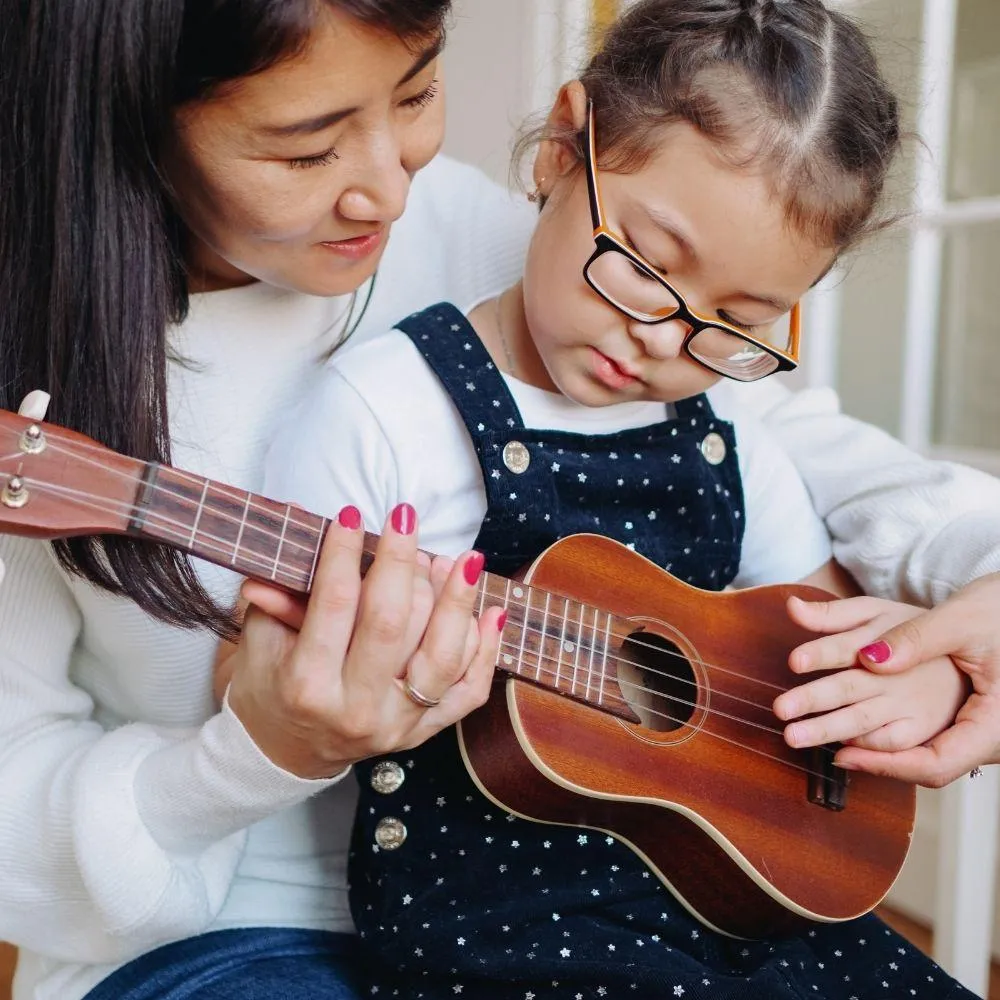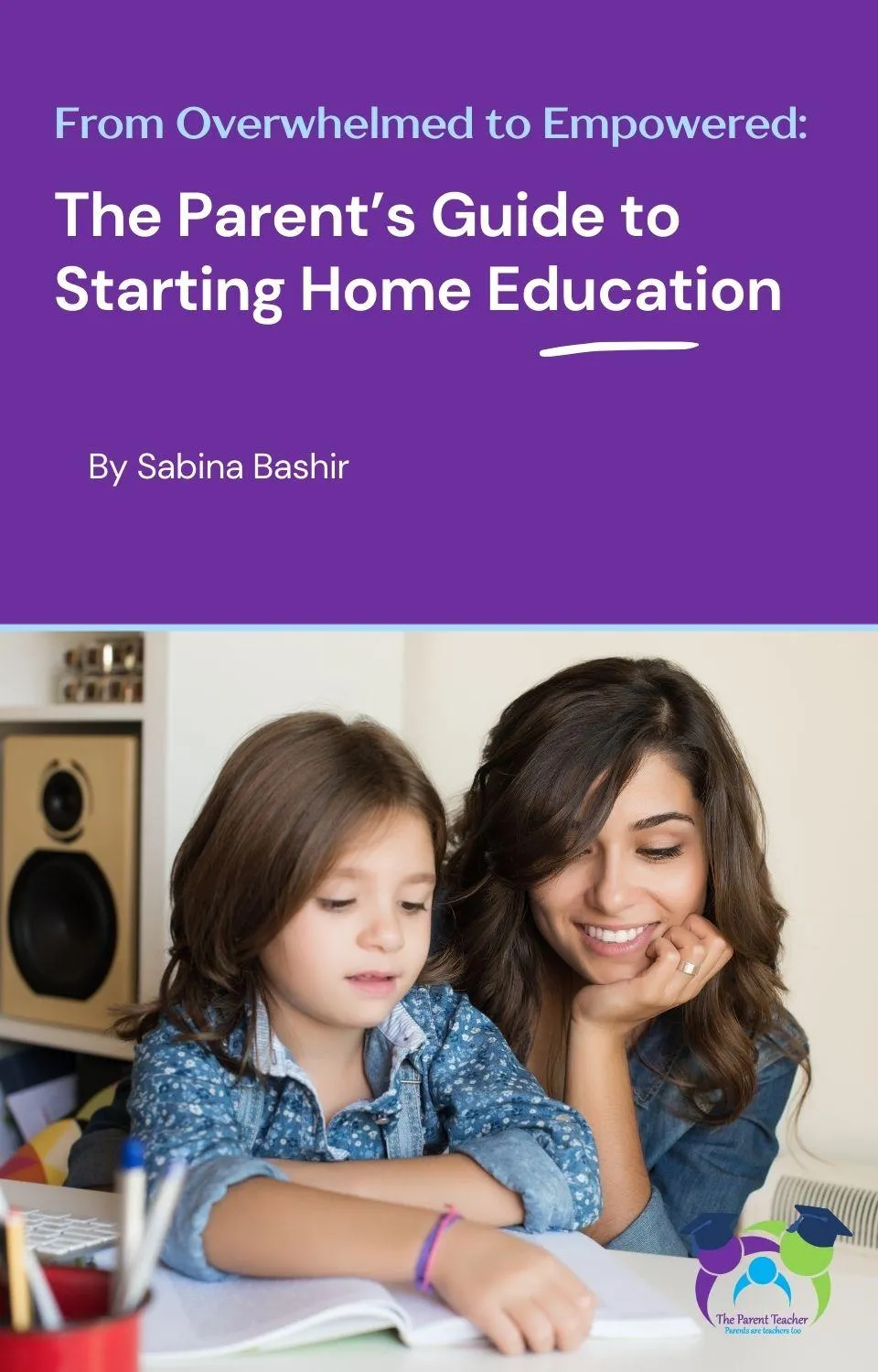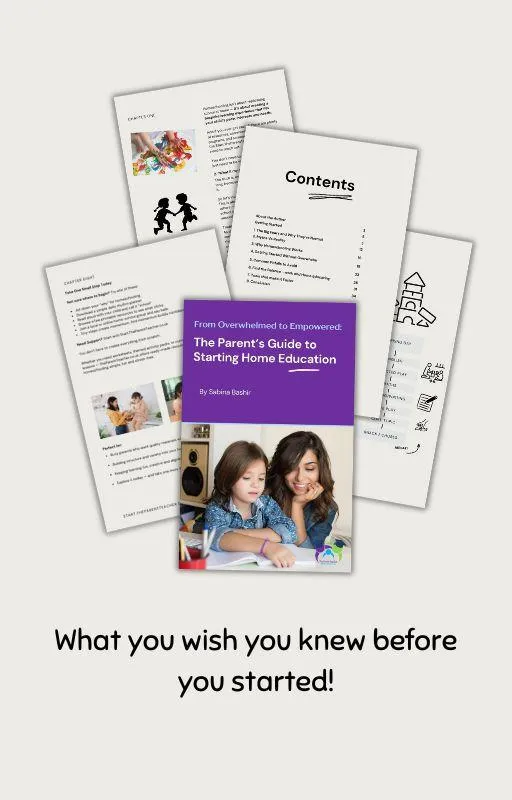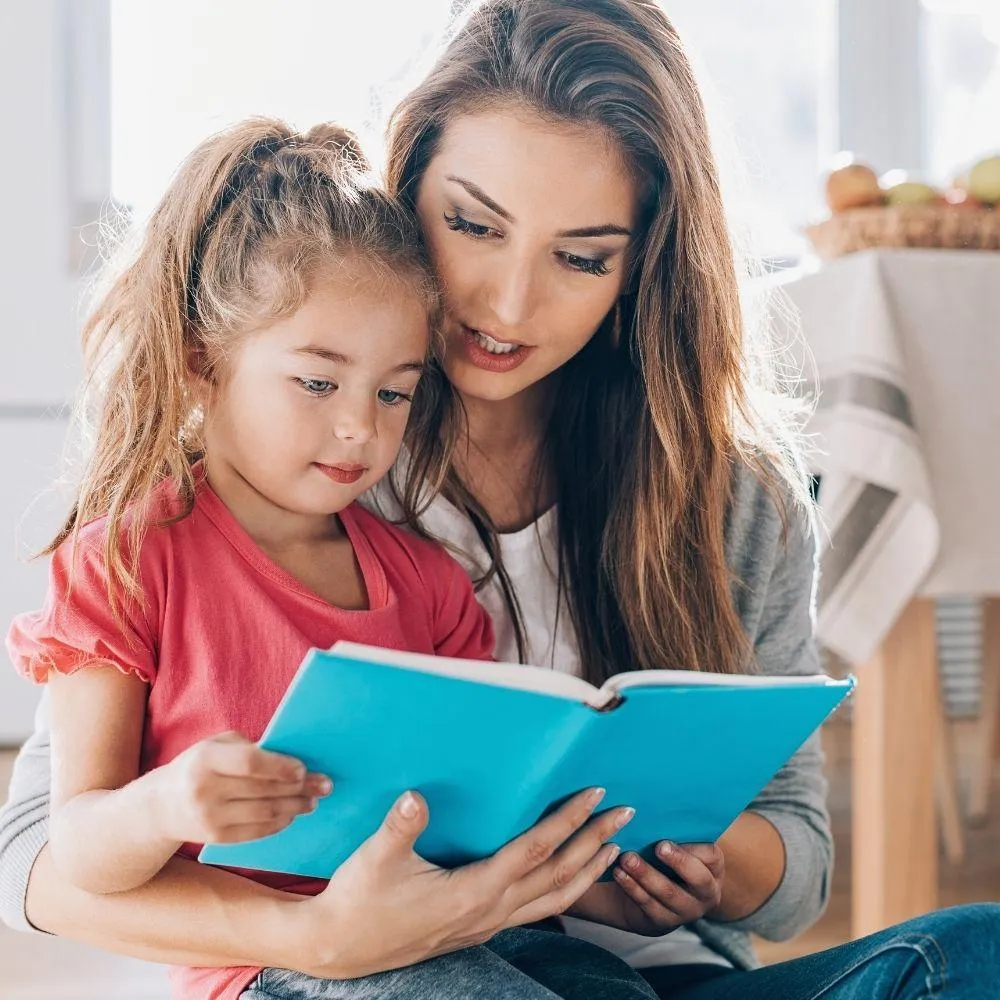EMPOWERING PARENTS
SUPPORTING CHILDREN
COMMUNITY
BIRTH - 12 YEARS
FROM HELPLESSNESS TO HOPE
New to Homeschooling: Start Calm, Start Confident
A friendly, practical guide for parents of children under 12 who are curious about home education but feel nervous about doing it “right.”
Discover if homeschooling is right for you!
Why Homeschool?
Home education is on the rise—over 126,000 children were home educated in the UK in 2022–23, up 60% and growing, since 2018.
Some families choose homeschooling because of anxiety, unmet SEND needs, or mental health concerns. But many others simply want a better fit for their child.
Here are some reasons why parents choose to home educate:
✅ More flexibility and freedom
✅ A learning style tailored to their child
✅ Some children work - acting, modelling and need to travel
✅ Some children are ill or convalecing after medical treatment
✅ Worries about bullying or school pressure
✅ Cultural or lifestyle values
✅ Dissatisfaction with local schools
✅ Travel, temporary life changes - moving home
Homeschooling isn’t just about leaving school—it’s about finding the best way to educate your child and what works best for your family.




Why this FREE guide exists
The number of parents choosing to home educate has surged in recent years. Yet, many still feel understandably nervous about taking the leap — concerned about legal requirements, socialisation, or whether they’re truly “qualified” to take on the responsibility.
Despite the rising numbers, support and clear guidance can still feel hard to come by.
This guide was created by a mother of 3 and teacher with over 30 years of experience in the classroom, who unexpectedly found herself having to home-educate her youngest child. Like many, she was torn — weighing the known benefits of school against the uncertainty of homeschooling. Even as an educator, the decision was daunting. The fear of the unknown was very real.
What began as a temporary solution turned into an ongoing journey of 7 years and still continues today as her daughter is now thriving.
If you’ve already made the decision to homeschool or still on the fence, this resource will support you in taking those important first steps with clarity and confidence.






For many families, choosing to homeschool is not a decision made lightly. It takes time, thought, research and confidence. And with limited information available outside of official guidelines, knowing where to begin can feel overwhelming.
That’s exactly why this page — and the accompanying eBook — was created. It outlines the essentials to help you understand what home education involves, so you can make an informed decision about whether it’s the right fit for your family.
It’s important to remember: families choose to homeschool for many different reasons. Therefore there is no one-size-fits-all approach — and there doesn’t need to be. The information here is designed to be broad, flexible and reassuring, with the aim of easing the concerns many parents face when starting this journey.
So here it is — a simple, supportive guide to help make your decision, and your homeschooling path, just a little easier. Fill in the form below and discover if homeschooling is a good fit for you.
Is Homeschooling For You?
Download Our Free eBook and Find Out!




Why Parents Love It

We were anxious at the start, but this guide helped us make our decision. I was worried about how it would fit into our life, but understanding that "schooling" doesn't have to happen between 9-3pm made a huge difference.
Jason
Dad of twins, age 6

I thought homeschooling meant recreating school at home. This ebook showed me that home learning actually happens all day long, it does happen at fixed times in the day.
Melanie
Mum of 5‑year‑old

I thought I'd have to do this alone and am relieved that I actually don't have to - that has really changed my mind. If you're not sure, definitely read this ebook, it's packed full of great advice.
Joan
Parent of a 4‑year‑old
You and the Law
Educational Provision Must Be "Suitable"
Legally, the education you provide must be "suitable" for the child’s age, ability and aptitude. This is a vague term, but it generally means that the education should meet your child’s needs and allow for their development. (We cover Child Development in this site so don't worry.)
However, you are not required to follow the National Curriculum unless you choose to do so. Having said this, many families do follow the National Curriculum, as they do not want to disadvantage their children and ensure that their children have the option of taking exams or attending college/university later in life if their child should wish to do so.
Frequently Asked Questions
1. Do I need to tell anyone if I decide to homeschool my child?
Yes—if your child is currently enrolled in a school, you must formally withdraw them.
This means writing to the school to inform them of your decision to home educate.
If your child has special educational needs (SEN), make sure the school is aware and note that additional steps may be needed—especially if they attend a special school (local authority permission is required in that case).
2. What kind of education do I need to provide?
Legally, you must provide a “suitable” education for your child’s age, ability, and needs.
There’s no requirement to follow the National Curriculum, but many families cover a mix of subjects like:
English, Maths, and Science
Art, Music, and Drama
Geography, History, and Physical Education
Life skills, social studies, or any topics your child is interested in
3. Do I need to keep records?
While it's not legally required, it’s strongly recommended. Keeping records helps track progress and prepare in case the local authority makes inquiries. You can keep:
A weekly timetable or lesson plans
Samples of your child’s work
Notes or informal assessments
Records of field trips, practical activities, or group projects
4. How will my child socialise if they’re not in school?
Home education doesn’t mean learning alone. There are many ways to help your child socialise:
Join local homeschooling groups or co-ops
Sign up for clubs, sports, or arts activities
Attend community events or meet up with other families
Many home-educated children have rich, active social lives with friends of all ages.
Plan 2–3 meaningful touchpoints weekly (meet‑up, class, family outing). Quality beats quantity.
5. Do I have to follow the National Curriculum?
No—it’s optional. However, some parents choose to follow it fully or in part because it provides:
A clear structure
National learning benchmarks
Helpful guidance for GCSE prep or re-entry into the school system
You can also adapt it to suit your child’s interests or learning style.
6. How flexible is homeschooling in the UK?
Very! You can:
Choose a structured or child-led approach
Teach at the pace your child learns best
Explore topics in more depth or take a cross-curricular approach
It’s one of the main reasons many families find home education so rewarding.
7. Are there any support networks I can join?
Yes! There are many places to get support, resources, and advice:
Education Otherwise – A charity supporting home-educating families
Home Education Advisory Service (HEAS) – Offers practical advice and educational resources
The Department for Education (DfE) – For up-to-date guidance on home education law
Your Local Authority – Each area is different, so check for local support groups and policies
8. Will my child need to take exams or assessments?
No formal exams or assessments are required, but:
Some families choose to do end-of-year assessments for peace of mind
You can enter your child privately for GCSEs or other qualifications if you wish
Keeping progress records helps if your child ever returns to school or applies for college
9. What are the key things to consider before starting?
Time & commitment – Home education is rewarding but requires planning and effort
Learning style – Think about what suits your child best
Support – Find or build a community of other home educators
Legal responsibilities – Make sure the education you provide is full-time and suitable
10. What’s the takeaway for parents thinking about homeschooling?
Homeschooling in the UK gives you the freedom to tailor your child’s education, but it also comes with responsibilities. Understanding the legal framework, knowing your options, and building a support network are key to a successful journey.
11. Do I need teaching qualifications?
They do help - but no. You need patience, a simple plan, consistency and the willingness to learn alongside your child.
12. How many hours do we “do school”?
It depends on the age but as a rough guide
For 4–6 year olds, 1 hour of short, focused activities plus rich play and life skills is plenty.
For 6-9 years old, 1.5 hours - 2 hours a day
For 10-12 years old, 2-2.5 hours a day, usually 30 mins per session
Remember this is not school - your child does not need to share their time with 20 other children, it's all concentrated on them and with that intensity, less time is needed.
13. How do I prove learning is happening?
Keep records—samples, logs and photos are enough in most regions. If your area requires more, the ebook explains how to prep.
14. Will my child fall behind?
Children develop at different rates. With daily reading, real‑life maths, and lots of play, most children thrive.
Local Authority Responsibilities
If your child was previously registered at a school and then withdrawn to be home educated, they will be registered as a homeschooler by the authority. Local authority policies on this vary widely.
Some councils take an informal, voluntary approach unless there are safeguarding concerns. Others may stay more involved to ensure your child is receiving a suitable education. This could include:
✅Asking to see samples of your child’s work or
✅Ask for a report or to meet with you.
✅They may observe your child and/or conduct an informal assessment of the child's progress.
✅Make home visits to see how the education is progressing.
However, they cannot impose a curriculum or force you to follow a specific educational approach.
(Sources: Home Ed Life, CPD Online College, High Speed Training Limited)
For Children with an Education, Health and Care (EHC) Plan
Children who attended a special school, must get permission from the local authority before deregistering and starting home education. If the local authority agrees that the home education provided is suitable, their responsibility to deliver certain services may be also be withdrawn. (Sources: childlawadvice.org.uk, Educational Freedom)
However, if the home education does not meet your child’s special needs or is considered unsuitable, the local authority has a duty to step in and may issue a School Attendance Order (SAO) to require your child to attend school. (Educational Freedom)




Still Want to Homeschool?
Ready to Take the Next Step?
If you’ve read the Parent's Guide to Starting Home Education eBook and decided you are ready to begin your homeschooling journey, the Homeschooling Starter Pack is your next essential resource.
Designed with clarity and calm in mind, this practical pack is full of templates, checklists, and planning tools to help you start with confidence — not confusion.
✅ No more guessing.
✅ No more winging it.
✅ Just thoughtful organisation and quiet confidence from day one.
✅ Tick off what matters
Plan with purpose, Feel supported, so that there is no more overwhelm — even when it's all new
🎒 Find out more and get instant access by clicking the button below.


